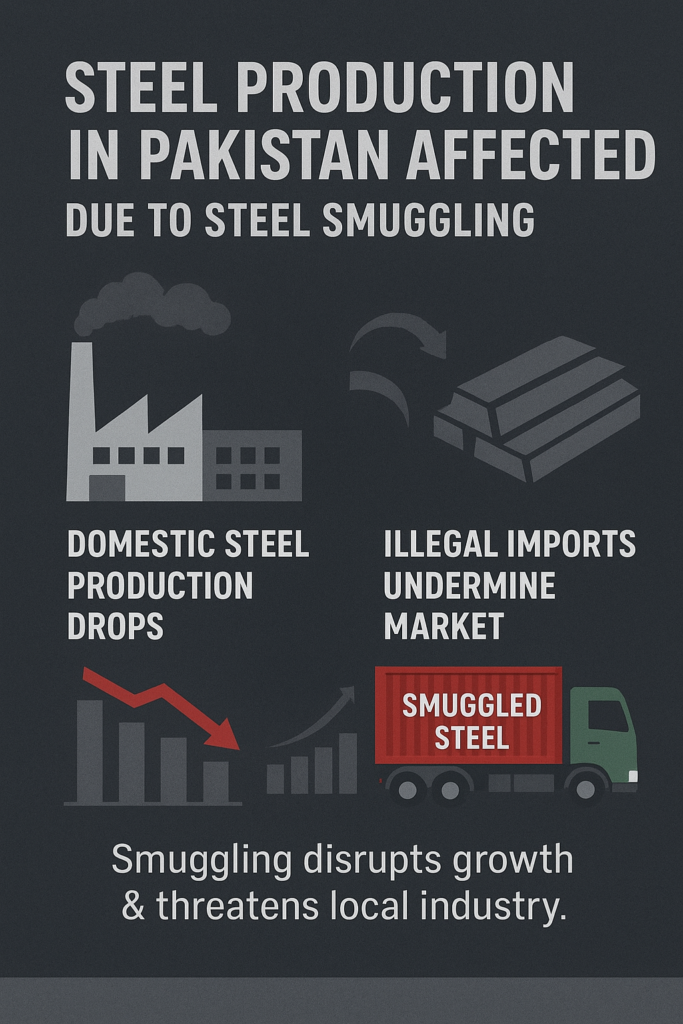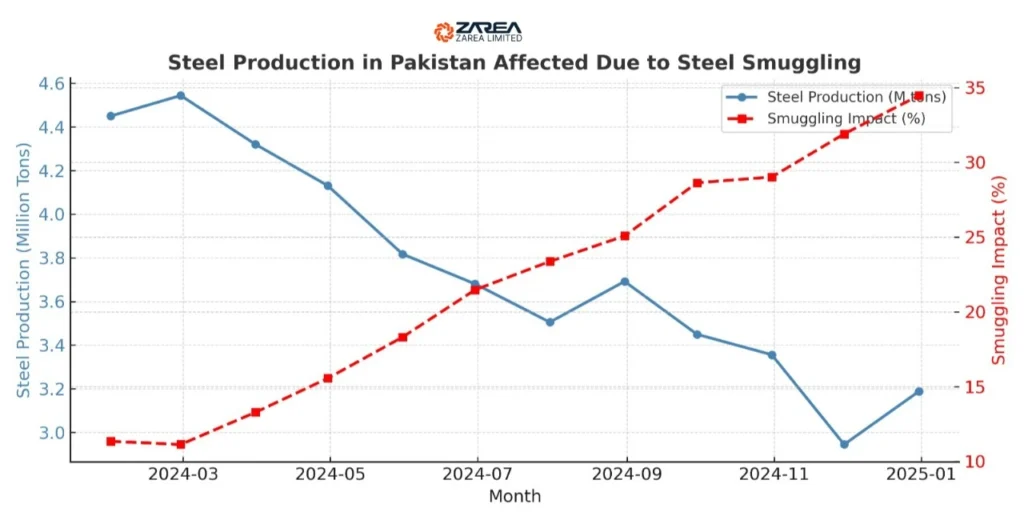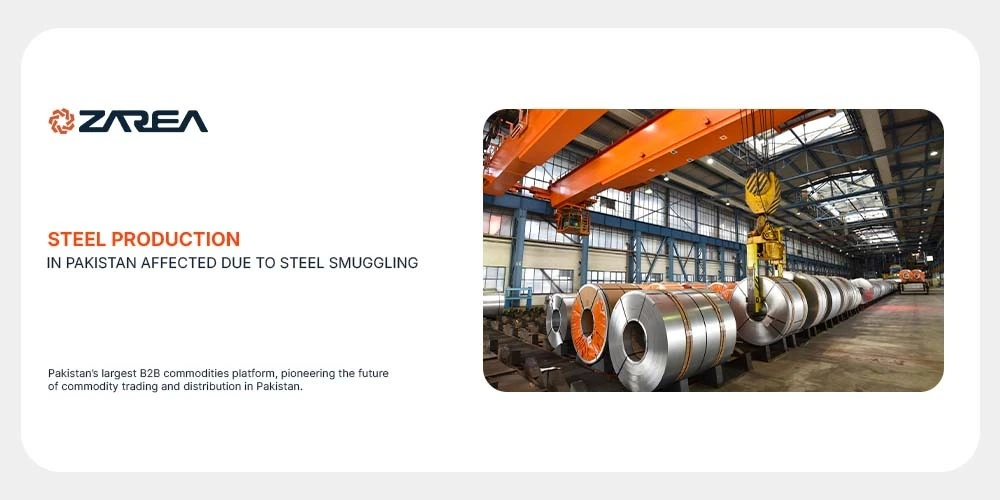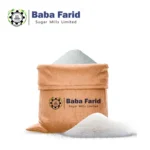Introduction – Pakistan’s Steel Production Industry:
Pakistan’s steel production industry is already dealing with the uncontrolled influx of smuggled steel. As it’s adding to the economic challenges and growing input prices for the local industry. Industry groups and market participants already warn that the smuggling of low-quality and frequently inexpensive steel products will badly affect the industry. Meanwhile it’s also threatening thousands of jobs, hurting domestic producers and reducing their competitiveness.
The major consumers of steel have already highlighted the danger. They say inflation and low public investment in infrastructure projects were putting increased pressure on the industrial and construction sectors. Although Pakistan’s steelmakers are seeing a decline in their profit margins because of smuggling. Yet the demand for steel is still stable on the market but in the near future it will seriously affect the market.

Impact of Smuggling on Domestic Steel Producers:
The flood of illegal or smuggle steel has caused several supply chain disruptions in the area:
- Price Pressure: Because of tax avoidance, illegally imported steel—which is sometimes transported via Iran or Afghanistan—enters markets at far reduced costs. Due to charges, levies, and rising energy tariffs, this undercuts indigenous manufacturing.
- Reduction in Output: According to industry estimates, domestic steel output has slowed as a result of firms cutting back on operations in response to fewer orders. A few mills have reported operating between 50 and 60 percent of their installed capacity.
- Quality Issues: Pakistani safety and quality regulations are unable to control the smuggled goods so far. Meanwhile structural integrity is crucial and it raises issues for the building industry.

Visit Zarea today to view product listings, place your bulk buy order, and receive the most latest prices! Pakistan’s largest business-to-business (B2B) commodities marketplace, setting the standard for future commodity distribution and trade in the nation.
Broader Economic Implications:
Reductions in steel output have effects that go beyond the mills.
- money Losses: When legitimately produced goods are replaced with smuggled steel, the government loses a significant amount of tax money.
- Employment Risks: Because steel is a labour-intensive industry, thousands of people might be displaced if output declines, particularly in metropolitan industrial centres.
- Foreign Exchange Pressure: Pakistan may eventually have to buy more completed steel due to limited domestic production, which would put additional strain on its foreign reserves.
Policy and Industry Responses:
The focused crackdown on illicit supply chains through more stringent border controls and better trade laws enforcement plays a role in controlling them. Meanwhile, the Pakistan Association of Large Steel Producers (PALSP) has consistently urged authorities in order to stop smuggling. Simultaneously, industry participants are requesting that policymakers:
- Since gas and electricity prices make up a large portion of steelmaking costs, rationalise energy pricing for local firms.
- Improve surveillance programs to spot smuggled items in nearby marketplaces.
- Facilitate Pakistani steelmakers’ support for export-led growth and must access to new regional markets.
Pakistan’s long-term industrial competitiveness may be weakened. If the gap between installed production capacity and actual output grows the problem will continue in the absence of such actions.
Outlook for Pakistan’s Steel Industry:
Although the future of steel production is still unclear according to present market conditions. Yet the government’s ability to stop smuggling and create a level playing field for competitors is still going to be there. It will also determine how resilient the industry is. Pakistan’s steel industry could still benefit from global demand patterns if internal issues are resolved. It’s a golden chance especially when you are talking about buildings and infrastructure projects throughout Asia.
However, for the time being, the flood of illegal steel has resulted in two problems: it has reduced domestic output and undermined the incentives for further investment in the sector.
Final Thoughts:
One major obstacle is the steel smuggling problem that’s still affected to the expansion of Pakistan’s steel industry so far. Meanwhile steel production runs in danger of stagnation unless the authorities take prompt action to assist regional producers. So they also might have a dangerous impact on employment, income creation and industrial growth in our opinion.
The survival of steel mills and the overall course of Pakistan’s industrial development depend on providing equal opportunities for indigenous manufacturers.


































